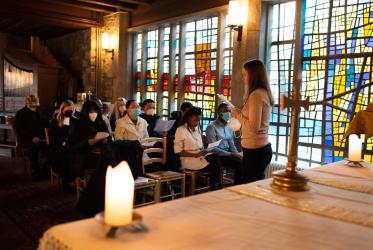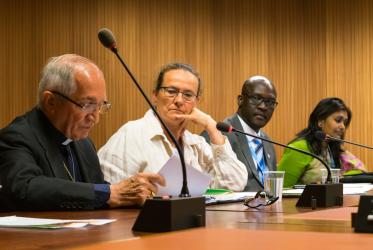Displaying 1 - 11 of 11
21 December 2022
New student body at Bossey Ecumenical Institute “a source of joy”
14 September 2020
At Bossey, ’I could feel the belongingness’
17 June 2020
How can you help refugees?
11 October 2018
Bossey alums praise its 70 years of ecumenical formation
13 October 2016
WCC conference explores ecological injustice in Uganda
21 April 2016








